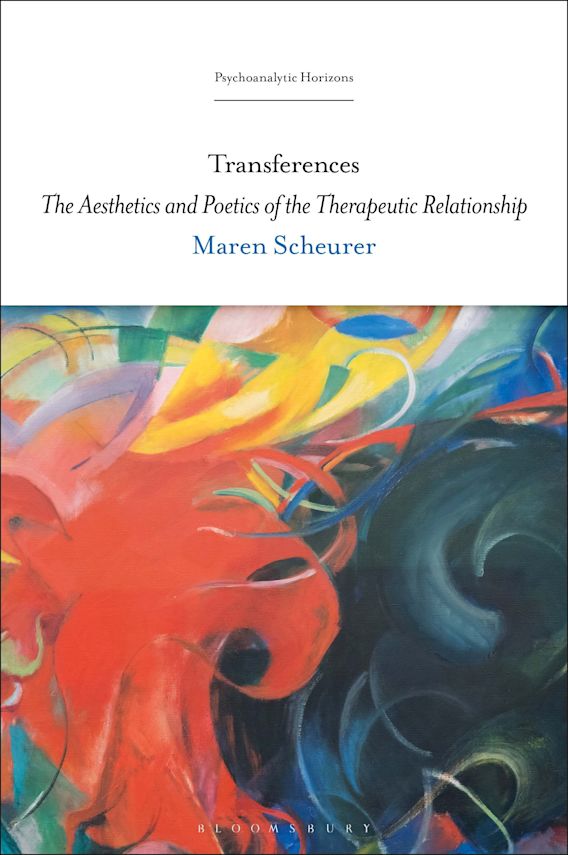Transferences: The Aesthetics and Poetics of the Therapeutic Relationship

Book Details
- Publisher : Bloomsbury
- Published : 2021
- Cover : Paperback
- Pages : 336
- Category :
Culture and Psychoanalysis - Catalogue No : 97862
- ISBN 13 : 9781501381447
- ISBN 10 : 150138144X
Reviews and Endorsements
Maren Scheurer holds the theoretical, poetic, and emotional in a marvelously creative tension in this ambitious, engaging, and wide-ranging study. The central psychoanalytic concept of 'transference' is opened up to reveal the many potential transformations (and 'transferences') through and across the arts and psychoanalysis as therapeutic practice. Scheurer encourages us to think about creativity, and its crises, the anxiety of interpretation, and also of critique; above all, to enjoy the (as yet unknown) possibilities offered by relational dynamics. As the character Gina, from the TV series In Treatment, says: 'you can’t observe yourself through your own binoculars.' The study will be of interest to academic researchers and clinical practitioners; but also, I think, to anyone interested in human relations, stories, and storytelling.
Susan Bainbrigge, Senior Lecturer in French and Francophone Studies, University of Edinburgh, UK
Maren Scheurer has written a fascinating study of the central role of transference in the complex interactions among psychoanalysis, literature, theater, and television. She succeeds admirably in her analysis of literary and filmic representations of psychoanalysis. She writes authoritatively, yet she is never authoritarian or dogmatic. Transference is a pioneering study of the relationship between psychoanalysis and the arts.
Jeffrey Berman, Distinguished Teaching Professor of English, University at Albany, State University of New York, USA
The comparisons and contrasts that Scheurer draws between psychoanalysis and literary, theatrical, film, and television art are extensive, penetrating, and insightful. One distinctive feature of this book is the painstaking and fascinating detail the author brings to the task of showing how psychoanalysis and the above-mentioned art (which she refers to as the humanities) illuminate each other, creating a synergetic 'third' between them that furthers the legitimacy of each while reinstating the irreplaceable importance of subjective narratives. I would expect this book to excite the interests of literary and film scholars, students and critics as well as psychoanalysts, psychotherapists and professors of psychology, as it delineates several intriguing perspectives around 'story telling' and narration in general.
Danielle Knafo, Professor of Clinical Psychology, Long Island University, USA

